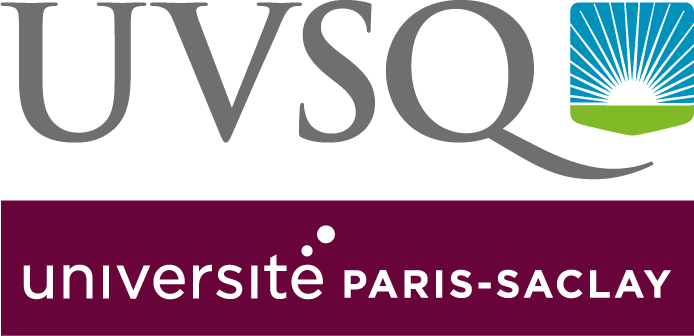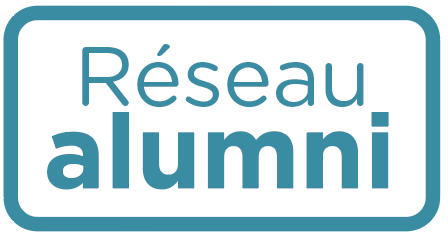Vous êtes ici : UVSQ RechercheHabilitation à diriger des recherches
- Mis à jour le 1 août 2022
- Version PDF
«Etude des réponses aux traitements anti-cancéreux du mélanome, recherche de biomarqueurs pronostiques ou prédictifs» par Elisa FUNCK-BRENTANO
le 3 juillet 2020
Le vendredi 03 juillet 2020 à 16h30
En visio-conférence : https://global.gotomeeting.com/join/733282581
Discipline : Dermatologie-vénéréologie
Résumé :
Depuis ces dernières décennies, des nombreux progrès ont été faits dans la prise en charge du mélanome cutané au stade métastatique puis récemment à des stades plus précoces avec l’arrivée des traitements adjuvants pour les mélanomes stade III à haut risque de récidive. Le traitement du mélanome repose sur deux grandes catégories de traitement, l’immunothérapie d’une part avec les inhibiteurs de points de contrôle immunitaires (anticorps monoclonaux anti-PD-1 +/- anti-CTLA-4), et les thérapies ciblées avec des petites molécules inhibant spécifiquement BRAF et MEK, deux protéines activées dans les mélanomes porteurs d’une mutation de BRAF sur le codon V600 (qui représente 40-50% des mélanomes cutanés). Ces traitements sont efficaces et relativement bien tolérés, cependant une majorité de patients y échappent.
Le travail présenté ici a pour ligne conductrice la recherche de biomarqueurs pronostiques ou prédictifs de la réponse aux traitements anti-cancéreux utilisés dans le mélanome (en adjuvant ou métastatique). L’objectif de ce travail est de présenter les résultats et projets à venir des deux principaux axes de recherche dans le mélanome portant sur la pharmaco-oncologie des thérapies ciblées d’une part, et sur l’étude de biomarqueurs de réponse à l’immunothérapie d’autre part. Seront présentées les études ayant porté sur les concentrations plasmatiques de vemurafenib et de dabrafenib/trametinib chez les patients avec un mélanome avancé muté BRAFV600 ainsi qu’un projet similaire avec la nouvelle association encorafenib/binimetinib. En situation adjuvante, sera présenté un projet sur les concentrations plasmatiques de dabrafenib/trametinib. Un projet de recherche translationnelle avec la mise en place d’une cohorte nationale de patients traités par anti-PD-1 en adjuvant et le développement d’un score pronostique de récidive, via l’identification de biomarqueurs sera également présenté. Enfin, des travaux portant sur l’association radiothérapie+immunothérapie et l’observation chez un certain nombre de patients d’un effet abscopal seront présentés; l’étude de la réponse immune observée chez ces patients semble être une piste intéressante d’identification de biomarqueurs de réponse.
Depuis ces dernières décennies, des nombreux progrès ont été faits dans la prise en charge du mélanome cutané au stade métastatique puis récemment à des stades plus précoces avec l’arrivée des traitements adjuvants pour les mélanomes stade III à haut risque de récidive. Le traitement du mélanome repose sur deux grandes catégories de traitement, l’immunothérapie d’une part avec les inhibiteurs de points de contrôle immunitaires (anticorps monoclonaux anti-PD-1 +/- anti-CTLA-4), et les thérapies ciblées avec des petites molécules inhibant spécifiquement BRAF et MEK, deux protéines activées dans les mélanomes porteurs d’une mutation de BRAF sur le codon V600 (qui représente 40-50% des mélanomes cutanés). Ces traitements sont efficaces et relativement bien tolérés, cependant une majorité de patients y échappent.
Le travail présenté ici a pour ligne conductrice la recherche de biomarqueurs pronostiques ou prédictifs de la réponse aux traitements anti-cancéreux utilisés dans le mélanome (en adjuvant ou métastatique). L’objectif de ce travail est de présenter les résultats et projets à venir des deux principaux axes de recherche dans le mélanome portant sur la pharmaco-oncologie des thérapies ciblées d’une part, et sur l’étude de biomarqueurs de réponse à l’immunothérapie d’autre part. Seront présentées les études ayant porté sur les concentrations plasmatiques de vemurafenib et de dabrafenib/trametinib chez les patients avec un mélanome avancé muté BRAFV600 ainsi qu’un projet similaire avec la nouvelle association encorafenib/binimetinib. En situation adjuvante, sera présenté un projet sur les concentrations plasmatiques de dabrafenib/trametinib. Un projet de recherche translationnelle avec la mise en place d’une cohorte nationale de patients traités par anti-PD-1 en adjuvant et le développement d’un score pronostique de récidive, via l’identification de biomarqueurs sera également présenté. Enfin, des travaux portant sur l’association radiothérapie+immunothérapie et l’observation chez un certain nombre de patients d’un effet abscopal seront présentés; l’étude de la réponse immune observée chez ces patients semble être une piste intéressante d’identification de biomarqueurs de réponse.
Abstract:
Over the past decade, considerable progress has been made in the treatment of patients with advanced melanoma and more recently in high-risk stage III melanoma patients in the adjuvant setting. Melanoma management is based on two regimens of treatment: immunotherapy with immune checkpoint blockers (anti-PD-1 +/- antiCTLA-4 monoclonal antibodies), and targeted therapy with small inhibitor molecules targeting BRAF and MEK, two activated proteins in V600 BRAF mutant melanoma (which represent 40-50% of cutaneous melanoma). These therapies are efficient and relatively well tolerated but a majority of patients escape.
The general thrust of the work presented here is the search for prognostic or predictive biomarkers of anti-tumour response to systemic anticancer therapies used in melanoma patients (in the adjuvant and metastatic settings). The objective of this work is to present results and future projects of two main research areas in melanoma: the pharmaco-oncology of targeted therapy on the one hand, and biomarkers of response to immunotherapy on the other. Studies on plasma concentrations of vemurafenib and dabrafenib/trametinib in patients with an advanced BRAFV600 mutant melanoma will be presented, as well as a similar project with the new combination of encorafenib/binimetinib. In the adjuvant setting, a project on plasma concentrations of dabrafenib/trametinb will be presented. A translational research project will be presented including the creation of a national cohort of patients with high-risk melanoma treated with anti-PD-1 monoclonal antibodies in the adjuvant setting and the developpment of a prognostic score of recurrence (via biomarkers identification). Lastly, works on radiotherapy plus immunotherapy combination and the observation in several patients of an abscopal effect will be presented ; to study the immune response observed in these patients seems to be an interesting line of research for the identification of biomarkers of anti-tumour response.
Informations complémentaires
Madame Caroline Gaudy-Marqueste, Professeur, Université d’Aix-Marseille (Rapporteur)
Monsieur Nicolas Meyer, Professeur, Université de Toulouse (Rapporteur)
Monsieur Laurent Mortier, Professeur, Université de Lille (Rapporteur)
Monsieur Florent Grange, Professeur, Université de Reims (Examinateur)
Monsieur Philippe Saiag, Professeur, Université Versailles Saint-Quentin (Tuteur)
Monsieur Nicolas Meyer, Professeur, Université de Toulouse (Rapporteur)
Monsieur Laurent Mortier, Professeur, Université de Lille (Rapporteur)
Monsieur Florent Grange, Professeur, Université de Reims (Examinateur)
Monsieur Philippe Saiag, Professeur, Université Versailles Saint-Quentin (Tuteur)
Contact :
DSR - Service FED : theses@uvsq.fr
Documents à télécharger
- Avis d'affichage HDR - Elisa FUNCK-BRENTANO.pdf PDF, 315 Ko









 Etudiants
Etudiants